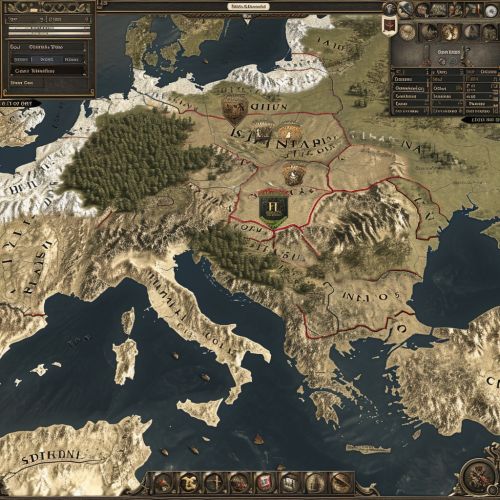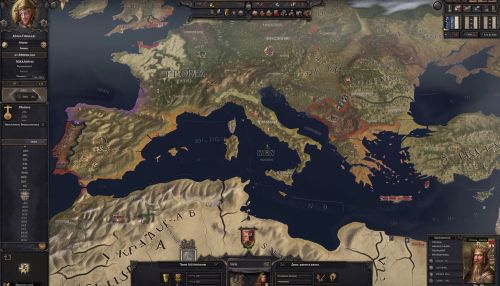Crusader Kings
Introduction
Crusader Kings is a grand strategy game series developed and published by Paradox Interactive. The series is set in the Middle Ages and allows players to control a Medieval dynasty from 1066 to 1453. The game combines elements of strategy, role-playing, and simulation, with players managing their dynasty's affairs at both the domestic and international levels.


Gameplay
Crusader Kings is a dynasty simulator where the player controls a Medieval dynasty from 1066 to 1453. The game is played on a map spanning from Spain to India, and from Scandinavia to Central Africa. The player can control one of several hundred playable dynasties and can pass their titles onto their descendants. The game is character-focused, with the player controlling a character rather than a nation.
The game uses a complex system of feudalism, with vassals and lieges having obligations to each other. The player must manage their vassals, ensuring their loyalty while also keeping an eye on their own liege. The game also features a complex system of laws and customs, with different cultures and religions having different rules and traditions.
The game also features a complex system of inheritance laws, with different cultures and religions having different rules for succession. The player must manage their dynasty, ensuring that their titles pass to their chosen heir. The game also features a complex system of marriage and alliances, with the player able to arrange marriages for political gain.
Development
The Crusader Kings series was developed by Paradox Interactive, a Swedish video game developer known for their grand strategy games. The first game in the series, Crusader Kings, was released in 2004. The game was well received by critics, who praised its depth and complexity.
The second game in the series, Crusader Kings II, was released in 2012. The game expanded on the mechanics of the first game, adding more depth and complexity. The game was praised by critics for its depth and complexity, as well as its character-focused gameplay.
The latest game in the series, Crusader Kings III, was released in 2020. The game further expanded on the mechanics of the previous games, adding more depth and complexity. The game was praised by critics for its depth and complexity, as well as its improved graphics and user interface.
Reception
The Crusader Kings series has been well received by critics and players alike. The games have been praised for their depth and complexity, as well as their character-focused gameplay. The games have also been praised for their historical accuracy and attention to detail.
The games have also been commercially successful, with Crusader Kings II being one of Paradox Interactive's best-selling games. The games have also spawned a number of expansions and DLCs, further expanding the game's content and mechanics.
Legacy
The Crusader Kings series has had a significant impact on the grand strategy genre. The games' focus on character-driven gameplay and dynastic politics has influenced a number of other games in the genre. The games have also been praised for their depth and complexity, setting a high standard for other grand strategy games.
The games have also had a significant impact on popular culture, with a number of memes and in-jokes among the game's community. The games have also been used as a teaching tool in history classes, due to their historical accuracy and attention to detail.
